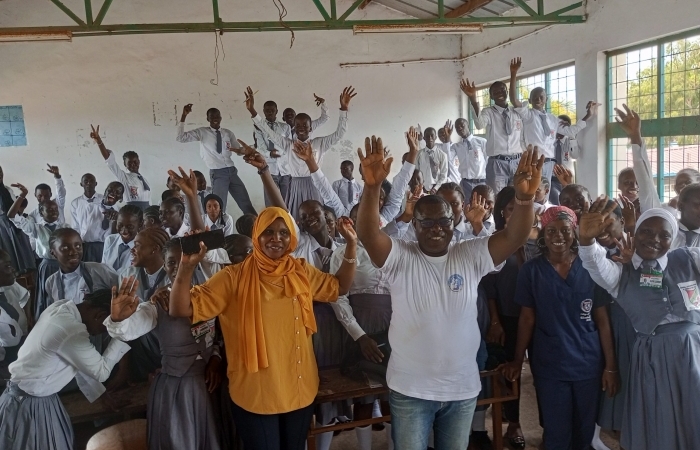Context
The Gambia is the smallest country on mainland Africa with a population of 2.5 million people and a population growth rate of 3.3 percent per annum. According to the United Nations Children’s Fund (Unicef), the country is a least development country ranked at 175 in the world’s human development index. Maternal mortality stands at a high rate of 597 per 100,000 live births in 2017, while infant mortality stands at around 34 per 1,000 live births in 2021. *
The right to health is not guaranteed in the Gambian constitution even though all the other health-related rights are recognized. However, the right to health for women and girls has been guaranteed in the Women’s Act (amended) of 2015. Yet, the protection of the right to health for women remains a major challenge mainly because the legal framework is cumbersome and contradictory. In addition to the constitution, the country also has Sharia and customary law as well as common law as part of its legal framework. Thus, on matters of marriage, divorce, inheritance and ‘wife inheritance’, individuals have the option to employ Sharia or customary law within the jurisdiction of the Cadi (Islamic) courts or local tribunals headed by a community chief. Consequently, deep-seated socio-cultural beliefs and practices, which are typically sanctioned by Islam, have served to undermine the right to reproductive health.
*https://data.unicef.org/country/gmb/
Goals
This project will provide critical information to the in-school adolescent population on reproductive health, sexuality and HIV/AIDS in conformity with the relevant national Sexual and Reproductive Health (SRH) policy.
Activities
The activities for this project will be Adolescent Sexual and Reproductive Health and Rights (ASRHR) training workshops for school heads, teachers and education authorities; peer to peer education training for adolescents in-school students who are/will become ASRHR ambassadors; workshops to sensitize religious and traditional leaders; and inter-schools SRHR quiz, essay competition, award and exhibition, to unearth the knowledge and skills of the beneficiaries.
Key Performance Indicators to be Reached (KPIs)
- Students will receive comprehensive sexual reproductive health rights education and awareness;
- Adolescent ambassador clubs will be established in 50 schools;
- Students will be aware of sexual transmitted infections.
Myriad Canada is working with Hope Life International, a charitable organization in the Gambia, West Africa, which fights poverty, diseases, and human rights abuses, providing advocacy on health care and community development.
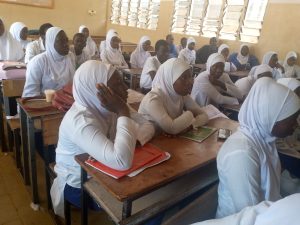 |
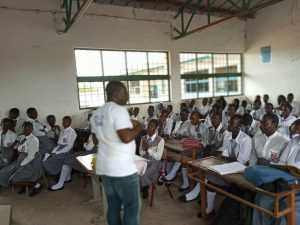 |
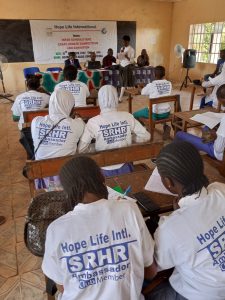 |
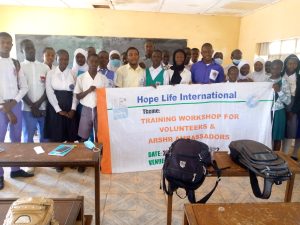 |
Myriad Canada’s role is to carry out charitable projects across the globe in accordance with its charitable purposes. We control and monitor the use of funds and the progress of charitable activities to ensure that donations made to Myriad Canada have the greatest impact in accordance with donors’ expressed wishes. As a member of the Myriad Alliance with offices in Canada, the US, Europe, Asia and Australia, Myriad Canada has a vast international network and extensive practical expertise.
How to support this project?
By credit card: At the top right of this page, indicate the amount you wish to donate, and make the donation online by credit card. You will receive a receipt for tax purposes by e-mail just a few minutes after making the donation. It is simple and quick!
By cheque:
- Make your cheque out to Myriad Canada.
- IMPORTANT NOTE: We receive a lot of cheques! You must please indicate “Project D309 – Sexual Rights and Reproduction Education for Youth in the Gambia” in the memo line of your cheque to ensure that it is allocated correctly.
- Mail your cheque to: Myriad Canada, 1 Place Ville Marie, Suite 1670, Montreal, QC, H3B 2B6, Canada.
By Direct Deposit:
- For transfer instructions, please email or call Caroline Chaulet: caroline@myriadcanada.org or +1 438 300 8122.
For Donation of Securities:
- Please email or call Caroline Chaulet: caroline@myriadcanada.org or +1 438 300 8122.
For Monthly Donations:
- We use CanadaHelps. Please find the link here.
If you need any assistance, please do not hesitate to contact us.
All donations are eligible for a tax receipt in Canada.
The projects are managed with the greatest care and professionalism.

